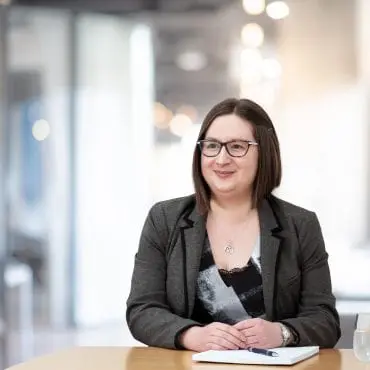
For life
Power of Attorney
Peace of mind that your affairs will be looked after should illness or injury strike
Speak to our For Life team
It is never too early to put in place a Power of Attorney, giving you and your family peace of mind that your affairs will be looked after should illness or injury strike.
Our highly qualified team includes members of the Society of Trust and Estate Practitioners (STEP) who have undertaken additional training to further their knowledge in the sector. STEP provides a mark of distinction in trust and estate planning.

Douglas Crombie explains what a Power of Attorney is and when you may need one in this YouTube video.
What is a Power of Attorney?
This is a document which appoints another person (your Attorney) to make decisions on your behalf and manage your affairs. There are two parts to a Power of Attorney – financial (referred to as ‘Continuing’) and welfare. You can choose to put in place only one or the other, but we would recommend covering both so that all eventualities are provided for.
What powers are given?
In essence the document allows your Attorney to act as if they were you and a wide range of powers are given. The financial part empowers them to, for example, manage your bank accounts, sell your property, look after your investments and oversee your business in your place. The second part allows your attorney to deal with your day-to-day welfare and healthcare, for example by consenting or refusing medical treatment and deciding where you will live.
When can the Attorney start acting?
The welfare powers can only be used if a doctor certifies you are no longer capable of making those decisions yourself. The Attorney, with your authority, can use the financial powers anytime after the document is in place (unless specified otherwise).
Who should you appoint?
You must absolutely trust those appointed as they will be able to make a number of important decisions on your behalf. You should consider appointing more than one Attorney so they can all assume the role, or have someone as a substitute who can step in should the first named person be unable to act.
Are safeguards in place?
A solicitor (or medical professional) must meet with you when you sign the document to certify you have the capacity to do so and are not being unduly influenced. Before being used, the Power of Attorney has to be registered with the Office of the Public Guardian, who can supervise Attorneys and investigate complaints regarding their actions. The law also contains guiding principles an attorney must follow and there is a Code of Practice they should adhere to.

What happens if someone is not able to grant a Power of Attorney?
If an adult has already lost capacity (for example through illness or disability) then it is not possible for them to sign a Power of Attorney. In those circumstances someone requires to apply to the Court to be appointed as their Guardian.




